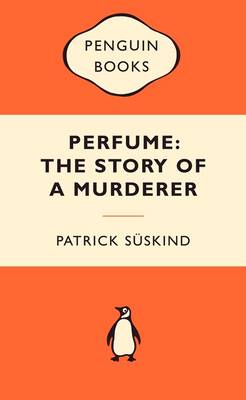Reviewed by Michael @ Knowledge Lost on
When first published in German in 1985, Perfume: The Story of a Murderer (Das Parfum: Die Geschichte eines Mörders) was a literary sensation for author Patrick Süskind. Two years later it was translated into English by John E. Woods, who went on to win the PEN Translation Prize for his work with this book. The original cover (which sadly isn’t used now) was from the painting Nymphe et satyre by Antoine Watteau 1715-16, which in English translates to Nymphs and Satyr. The novel was the inspiration for Nirvana’s Scentless Apprentice, Rammstein’s Du riechst so gut, Red Head Girl by Air and so on.
The point I am trying to make is that this book was a huge success that went on to inspire many. This is actually a re-read for me and I first read this almost five years ago and found myself being completely captivated but the book. When I first reviewed the novel, I said that “I love an anti-hero and Jean-Baptiste Grenouille didn’t disappoint as the cold hearted, scent obsessed protagonist.” Which is true, but this time I wanted to look at the novel a little more in-depth.
Firstly, I found it interesting the way women where portrayed within this book. At birth and childhood, women are represented as carers but his mother, wet-nurses and the nuns all reject Jean-Baptiste Grenouille. Then when he grew into a man, the role of the woman changed from carer to the object of desire. However, for Jean-Baptiste, the idea of acceptance by a woman remained strong throughout his life, but he remained alone, which made him feel undesirable.
I had been thinking about Perfume since first reading the novel and I came to the conclusion that scent worked as a metaphor for lust in this book. A lust that Jean-Baptiste had towards young virgins; which is so typical and boring but I was interested in the way Süskind used smell to explore this idea of lust. While this still rung true for me the second time around, I also began to look at smell as a representation for class; the higher the social standing the better you smell.
Both ideas seem to come together at the end, when Jean-Baptiste releases the fragrance everyone smells the same; become equals. When it comes to theme of lust, everyone is over come with desire and the scent makes everyone attracted to each other. No one has to feel the way Jean-Baptiste felt, rejected from birth. However this scene left me curious, if everyone becomes desirable and equal; why is everyone straight in this scene. There is no mention of any same sex coupling and I felt a little perplexed by this; it is not like everyone is straight or no mention that the scent only attracts you to the opposite sex.
It is an interesting experience re-reading a book, I don’t often do it but I am starting to see the appeal. First time around, I really focused on the plot and when I picked up Perfume again all that came flooding back which allowed me to explore themes and ideas within the book. I was able to take what I thought previously and dive deeper into the novel which I found so much more rewarding. I think I have converted myself into a re-reader; I have already started reading The Master and Margarita again.
This review originally appeared on my blog; http://literary-exploration.com/2015/01/28/perfume-the-story-of-a-murderer-by-patrick-suskind/
Reading updates
- Started reading
- 7 January, 2015: Finished reading
- 7 January, 2015: Reviewed
- Started reading
- Finished reading
- 7 January, 2015: Reviewed
